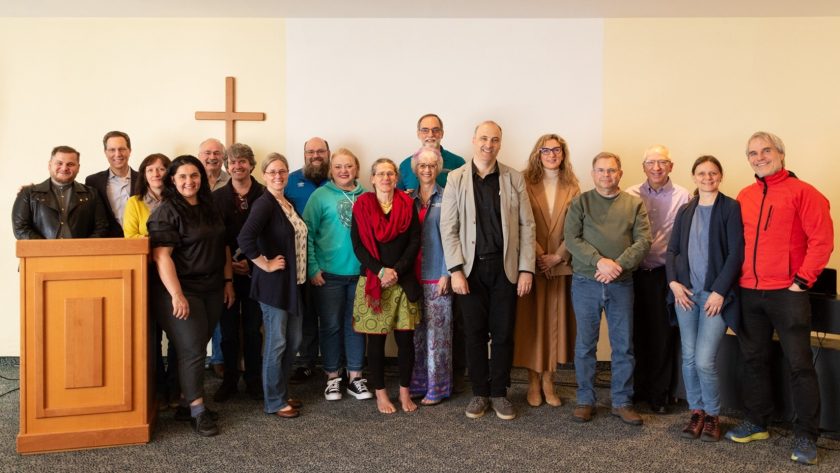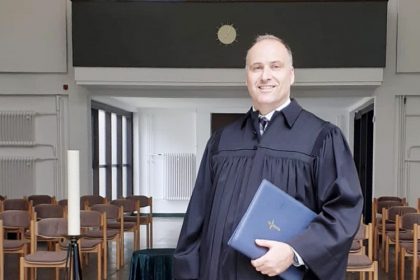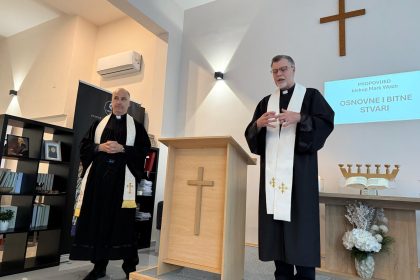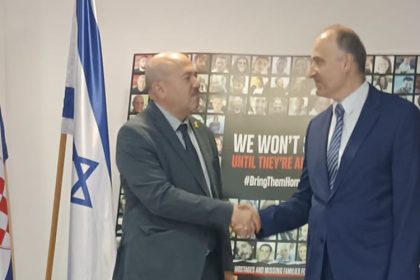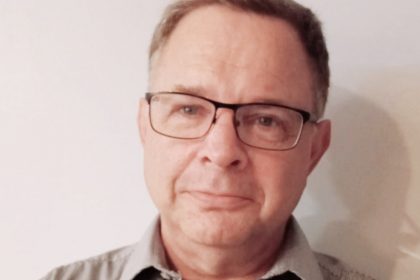On the pebbled shores of the Adriatic Sea, twenty-two Evangelical Methodist leaders met and discussed the state of the Church and God’s work in Eastern Europe and the United States. The second annual Adria Connection gathering was held during the last week in April. The overall impression was one of hope. God has called and empowered strong, spiritual warriors to shine the light of Christ’s truth into the darkness, and we are facing the challenges together. But, as one speaker said, “This is hard ground to plow.”
In the United States, the most difficult period we have experienced is the COVID shutdown of our country. We see the devastating effect it had and continues to have on the Church, as evidenced by people continuing to stay home and watch Sunday services online. The lack of community is felt, and yet people choose to live a life separated from other believers.
At this conference, though, the USA contingent heard firsthand about the lasting effects of Communism on the people of Eastern, Northern, and Central Europe. People are resilient, almost too resilient. The Berlin Wall came down in 1989, but the walls around people’s spirits remain intact. Their values are mostly conservative. But as one presenter explained: “It’s not that Europe doesn’t believe in God, they just don’t care about him.” There is much to be done for Christ.
The seminaries in Slovakia and Estonia are actively supporting future clergy in their studies. Mark Nelson, Dean of the Baltic Methodist Theological Seminary (BMTS), reported that approximately 90% of Estonians are effectively unchurched. He also noted that most pastors are bi-vocational and clergy are unpaid.
The Methodist churches of Estonia finalized disaffiliation July 1, 2023 and in their 2024 Annual Conference voted to remain independent but also expressed a strong desire to be missionally connected as partners with conservative Wesleyan and Methodist churches. The BMTS has a relationship with Asbury Seminary which supports them by supplying instructors. Simultaneous translation allows students to study in Estonian, Russian and English. Studying online is also an option. Their vision is to develop more cooperation both in developing churches and in the education of church workers.
Dr. Tom Tumblin from Asbury Seminary in Wilmore, Kentucky, USA emphasized the Visiting Scholars program for faculty to teach internationally, strengthening global partnerships. Stating that, “We have more to learn from outside the U.S. than from inside the U.S.,” Asbury has formed the Center for Church Multiplication to equip and support people called to missions. They also have access to counselors who are available to be sent for Trauma Counseling, in addition to Spiritual Counseling and Deliverance ministry.
For those who are looking for printed materials, Seedbed Publishing is a reliable resource for videos and books for the growing church, as well as First Fruits Press who specializes in preserving historic Methodist documents.

Dr. Scott Kisker from United Theological Seminary (UTS) described a culture-shift at the seminary within the last twenty years due to their focus on Historic Faith, Scriptural Holiness, and Church Renewal. Students can pursue their education completely online in some cases. UTS is cultivating clergy with the knowledge that holiness cannot be separated from discipleship and authority. Dr. Kisker, who helped write the book on Methodist Band Meetings (published through Seedbed), gave a testimony to discipleship and the practice of seeking social holiness through Class and Band Meetings, helping each other learn to abide in Christ and pursue sanctification with the support and accountability of other believers. An underlying theme of the conference, Dr. Kisker mentioned, is “Whenever you follow the Lord, it means sacrifice.”
We spent the rest of the conference hearing from pastors and missionaries, the people on the front lines of bringing others to salvation in Christ. Milan and Dana Mrazek from Czechia reported that those UMC churches disaffiliated in May 2023 and are currently independent, discerning the way forward. The financial support they have been receiving is scheduled to cease by 2027. Some pastors have become chaplains to help decrease the financial burden. They are looking for conference partnerships.
Christine Doren, a current GMC pastor in Pennsylvania and a former missionary, gave us an update on the country of North Macedonia. The country is very conservative but the UMC churches have not disaffiliated due to financial dependence. She will be speaking and preaching at conferences there the first week of May, and we look forward to hearing about the ways God is moving.
Dorothea Hinske from Germany gave an encouraging account of the Holy Spirit’s work. She is on the board of the Gemeinschaftsbund (Covenant Community) within the German UMC. It was started in 2021 as “a church in the church” like the Evangelical Pietist movement in the 19th Century.
Christian Instrade, a pastor from Romania, grew up with religious persecution under the Communist regime. He said, “I tried to find out who Christ was after Communism, but Christ found me.” His message to the GMC church is that relationships are needed, that we all need to address the needs of pastors and leaders of the Eastern European church.
A friend from Kosovo gave an inspiring view of their ministry, but also mentioned “We are better at training pastors than training people to build relationships.” Prayers are welcomed for the unchurched and for the church to remember that God pursues us and wants us to pursue others for Him.

Vatroslav Župančić, was the conference host. He is the only GMC pastor in Croatia and an incredible visionary. He brought a thought-provoking comment from Bishop Webb: “If you want to be a Methodist and independent, are you really a Methodist?” Vatroslav wants to help improve connections among the churches of the GMC, noting that the Methodist churches of Spain, Slovakia/Croatia, Bulgaria, and the pastors of Romania are GMC – but only Bulgaria is connected to a U.S. Conference (MidTexas Provisional Annual Conference). His Lay Leader Martina Lukić, a lawyer and an active Pro-Life and Family advocate, outlined an impressive list of her advocacy activities over the last year. She also noted an upcoming conference for persecuted Christians.
Representing the U.S. GMC churches, Randy Coleman and Tom Hanover asked attendees to consider what it would be like to be a “can’t-go-back church”. They restated the need to develop pathways of leadership development in Europe that is sensitive to each local culture – and growth via small group ministry. They also noted that the GMC will not compromise spiritual integrity as it continues to establish policies and procedures.
Why attend this conference? Because we are a GLOBAL church! To all our Evangelical brothers and sisters, please hear: relationships are what will change the world for Christ. Remember: you are not alone, we are in this mission together! As GMC representative Mitch Arnold mentioned at the beginning of the gathering, our primary mission is to be like the friends of the paralytic: we are to bring people to Jesus’ feet.
Please pray that the message of hope from this gathering will soon spread through Europe and awake new partnerships for the sake of spreading of the message of Gospel.

